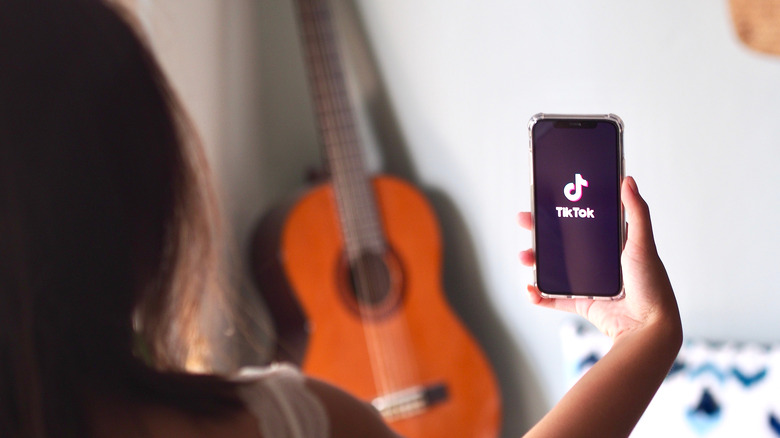Expert Reveals Why Millenials And Gen-Zers Are Flocking To The Enneagram - Exclusive
If you haven't heard of the Enneagram, the popular nine-type personality system will likely surface in your online interactions or come up in conversation soon. The Enneagram can help you improve your relationship dynamics, childhood wounds, and coping mechanisms, increasing self-awareness and accountability.
Truity is one of the leading Enneagram testing websites and a platform that provides educational resources on a range of personality typing systems. Since its founding in 2012, its CEO, Molly Owens, has expanded its mission to provide blogs and vital personalized information to improve over 50 million users' daily lives.
In building Truity, Owens used her understanding of psychology and therapy — as well as her expertise in the Enneagram and Meyers-Briggs 16 personality typing system — to provide free testing and educational resources. In an exclusive interview with The List, the expert shared what tools we might gain from the Enneagram over other personality typing systems.
Owens outlined an intriguing development in the world of personality testing. "Up until a few years ago, when we thought about personality typing the go-to system was Myers Briggs, but we've seen a huge shift towards interest in the Enneagram." The expert explained this cultural shift as a product of spiritual developments that serve a newly reflective generation.
The Spiritual But Not Religious movement has influenced personality typing in a big way
A 2017 survey conducted by Florida State University and the Public Religion Research Institute found that 29% of Americans identify as "both spiritual and religious," 18% as "spiritual but not religious," 22% as "not spiritual but religious," and 31% as "neither spiritual nor religious."
With this range of belief systems and priorities, the Enneagram appeals to a demographic that has moved away from traditional religions and turned to new conceptions of spiritual life. The Spiritual But Not Religious movement can include a range of belief systems and theories about life's meaning. And the movement seems particularly useful for generations that place an emphasis on self-awareness and growth.
In explaining the increasing popularity of the Enneagram among younger generations, Truity's CEO Molly Owens explained that the shift seems to relate to the Enneagram's connection to metaphysical roots and broad potential applications. "Whereas systems like Myers Briggs have their roots in scientific research, the Enneagram was borne out of ancient mysticism and spiritual exploration," she explained.
"As a result, it offers a lens on people that's less about practical goals, like choosing the right career or communicating with coworkers, and more about exploring ourselves deeply — getting in touch with our fears, our core desires, and the beliefs we have about the world and the people in it."
Online communities are leading the new spiritual revolution
Gen-Zers and Millennials have demonstrated a proclivity toward astrological guidance, tarot card readings, and other interpretive systems outside traditional doctrine. On TikTok, it's normal to see live tarot readings, therapists giving spiritually-informed advice, and plenty of helpful mantra for self-worth and realization (per La Vie de Zee).
Truity's CEO Molly Owens sees this as a meaningful reason younger age groups are being drawn to the Enneagram. "There seems to be a real resonance now, especially for Millennials and Gen Z, with this way of thinking about people."
Owens also went into detail about the Enneagram's analysis of the nine types' strengths and challenges. "Compared to other systems, the Enneagram is more holistic and more focused on our shadow sides," Owens told us, defining shadow sides as "those aspects of ourselves that we may try to hide from others, but that also offer the most opportunity for development and growth."
Further demonstrating this shift in attitudes toward self-discovery, Vox spoke to Megan Ribar, a woman who relies on yoga and a personalized practices for spiritual fulfillment. She told the outlet that traditional religion "often means people stop asking questions."
She also shared, "Practices like these can be a way to create beauty out of the chaos I often feel I'm surrounded by." This sentiment may feel familiar to young people dealing with overwhelming political and global circumstances. But, hopefully, Generations Y and Z are on the best possible path toward growth, finding new positive coping mechanisms in the face of daily stressors.


